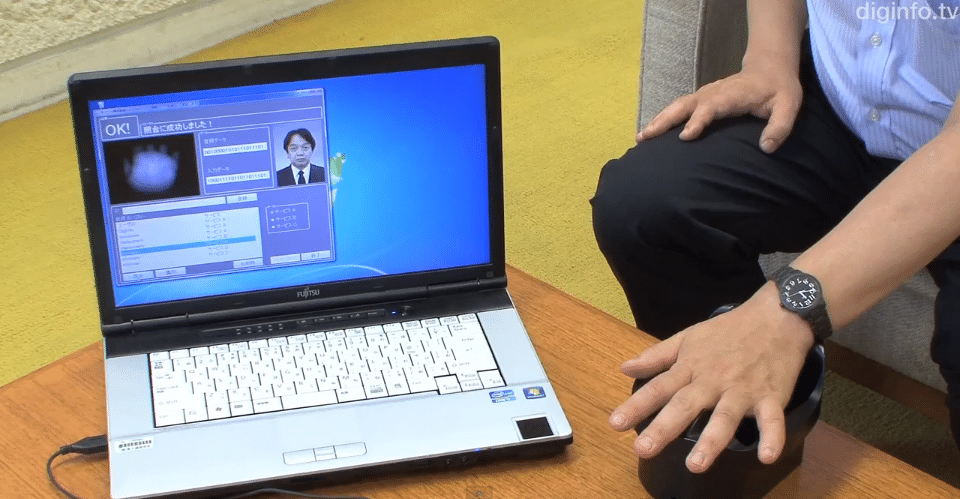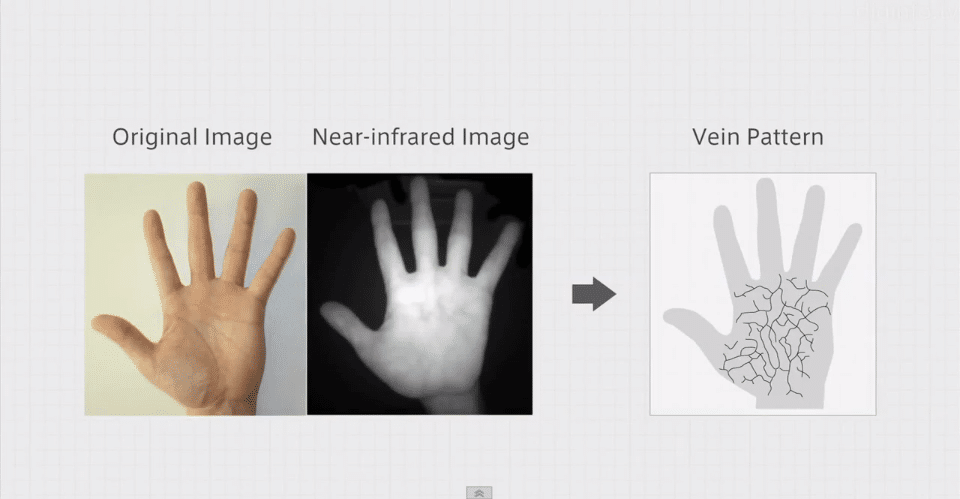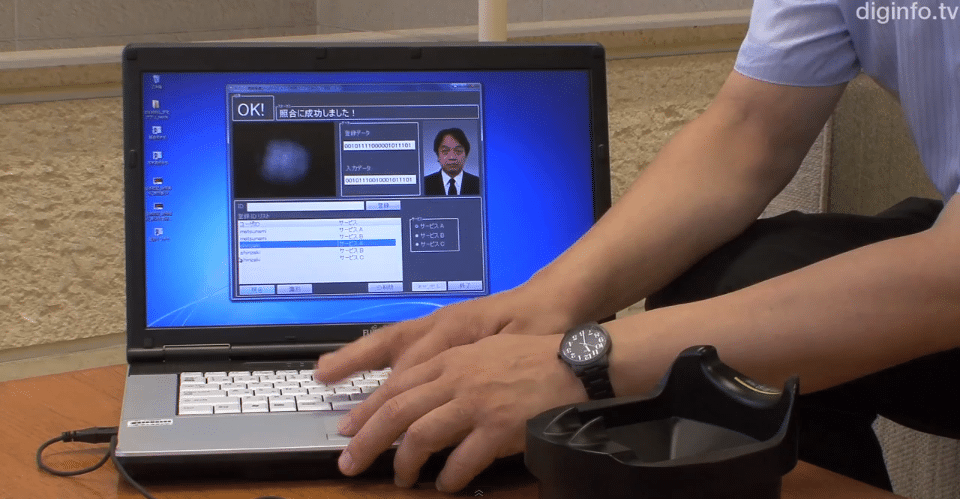Being able to securely authenticate and identify ourselves in our tech savvy world is getting ever more important. Innovators are struggling to find better ways for us to do just that. I don’t think there is a single method that hasn’t been cracked yet, even though they are beyond advanced. Companies like Fujitsu are trying to find new ways to authenticate users. By 2015, our world could become one big palmprint scanner happy society with maybe a bit more security infused into it.
I think there is always going to be a fear that technology will take take over our authentication process a little bit too much, rendering us virtually unable to prove our own identity if there is a malfunction somewhere along the way in the actual authentication process itself. What then? What if someone has an accident which causes his or her identification limb to be bruised and battered to the point where authentications fails?
The palmprint sure sounds like a good process, but all it would take is for someone to bruise their hand making the veins all jumbled up and the authentication would fail, right? Maybe I am too uneducated to understand the secure complexities of this palmprint process, but that’s how I, as a humble consumer, would look at it.
Fujitsu is planning to make their palmprint reader available by 2015, and it will target convenience stores, targeted deliveries and also website authentication. I am definitely all for making authentication more advanced and secure, and even though this palmprint reader generates 2,048-bit reference codes, it still has a probability of mistaking the user’s identity in about one in every 100,000 scans. Is that secure enough?
Furthermore, the palmprint reader algorithm is able to generate several different authentication codes off of the same palmprint. This means it’s supposedly a really good tool for authenticating users on several different services without ever having to use the same code for each service. This would make a great addition to the facial recognition tool, Uniqul, that is being rolled out as we speak. It could come to render our pockets walletless and free of identification documents all together. Is it a good idea? I guess that is up to the people who are going to use it. What do you think?



COMMENTS